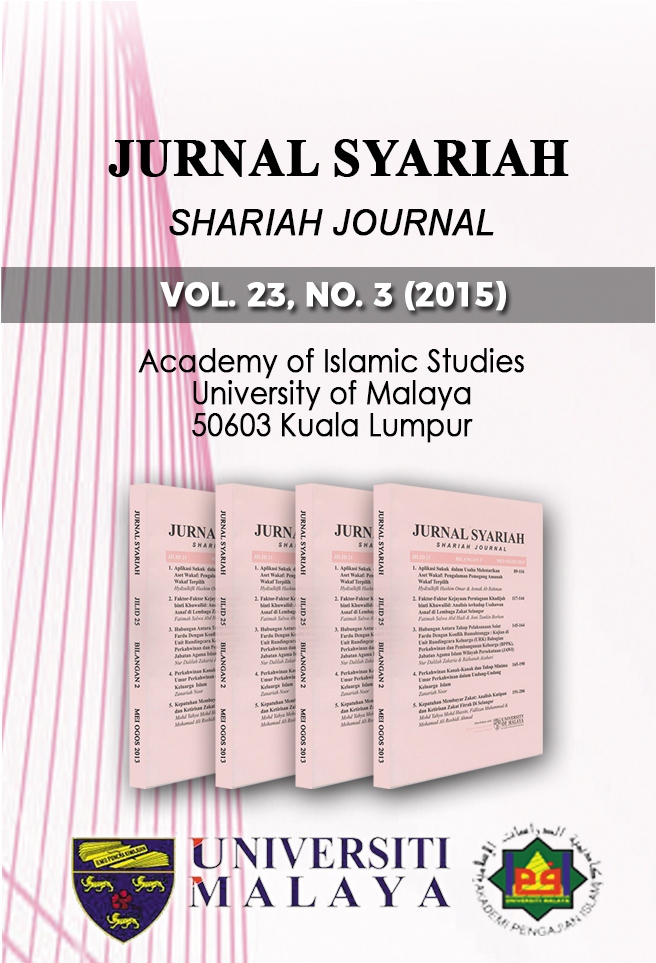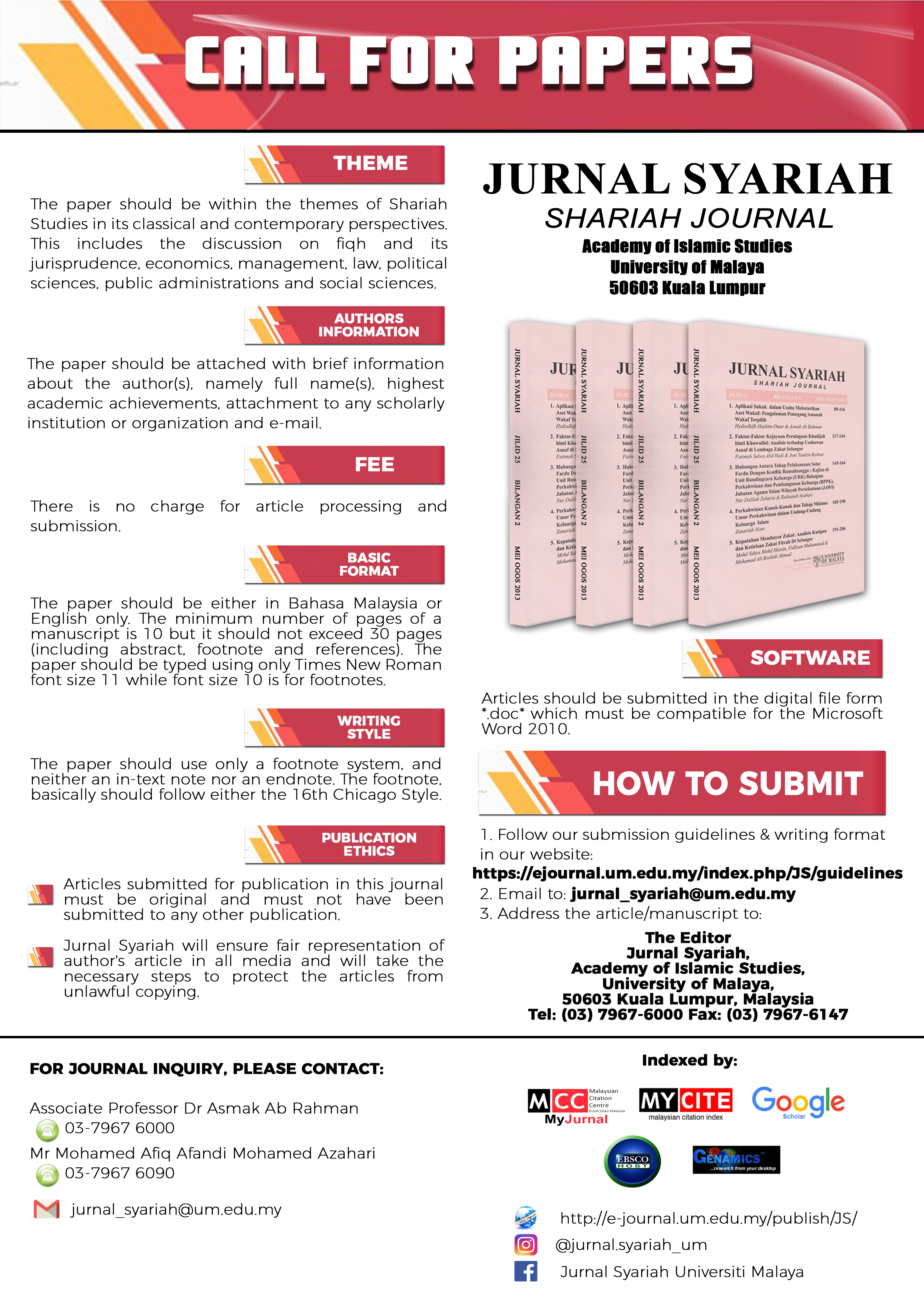MUSLIM WOMEN’S RIGHT TO MARRIAGE DISSOLUTION IN THE CASE OF MISSING HUSBAND: A JURISTIC ANALYSIS ON MISSING PASSENGERS OF MH 370
DOI:
https://doi.org/10.22452/js.vol23no3.6Keywords:
missing person, presumption of death, divorce, legal implication, mafqūdAbstract
March 8th has marked a catastrophe in Malaysians’ calendar as the Malaysia Airlines Flight 370 (MH370) which was a scheduled international passenger flight disappeared while flying from Kuala Lumpur International Airport to Beijing Capital International Airport. The aircraft was carrying 12 Malaysian crew members and 227 passengers from 15 nations. Months have passed, still there is no news nor debris of the unfortunate aircraft found. This incident is one of the many more incidents involving disappeared persons; some have been disappeared for months, while others for years. Narrowing the scope of the discussion, certainly a wife whose husband has been missing for a long time is deprived of her protection, companionship, pleasure of life and financial support. In view of this, the article aims at analyzing the juristic legal opinions specifically in the case of missing husbands amongst Muslim women. In relation to that, it will then discuss on their right to apply for divorce under the Islamic family law in Malaysia. Classical jurists writings and statutory provisions are gathered and analyzed during the research. The findings indicate that there has been dissenting views among one madhhab (sect) to another on the legal implication of a missing person. Where Malaysia law is concerned, the provision has adopted a more convenient view amongst the jurists which allows a dissolution of marriage under certain specified conditions.
Downloads
Downloads
Published
How to Cite
Issue
Section
License
Copyright (c) 2015 Jurnal Syariah

This work is licensed under a Creative Commons Attribution-NonCommercial 4.0 International License.
COPYRIGHT: All rights reserved. Not allowed to be reproduced any part of articles and contents of this journal in any form or by any way, whether electronic, mechanical, photocopying, recording or otherwise without permission in writing from the Chief Editor, Jurnal Syariah.



















